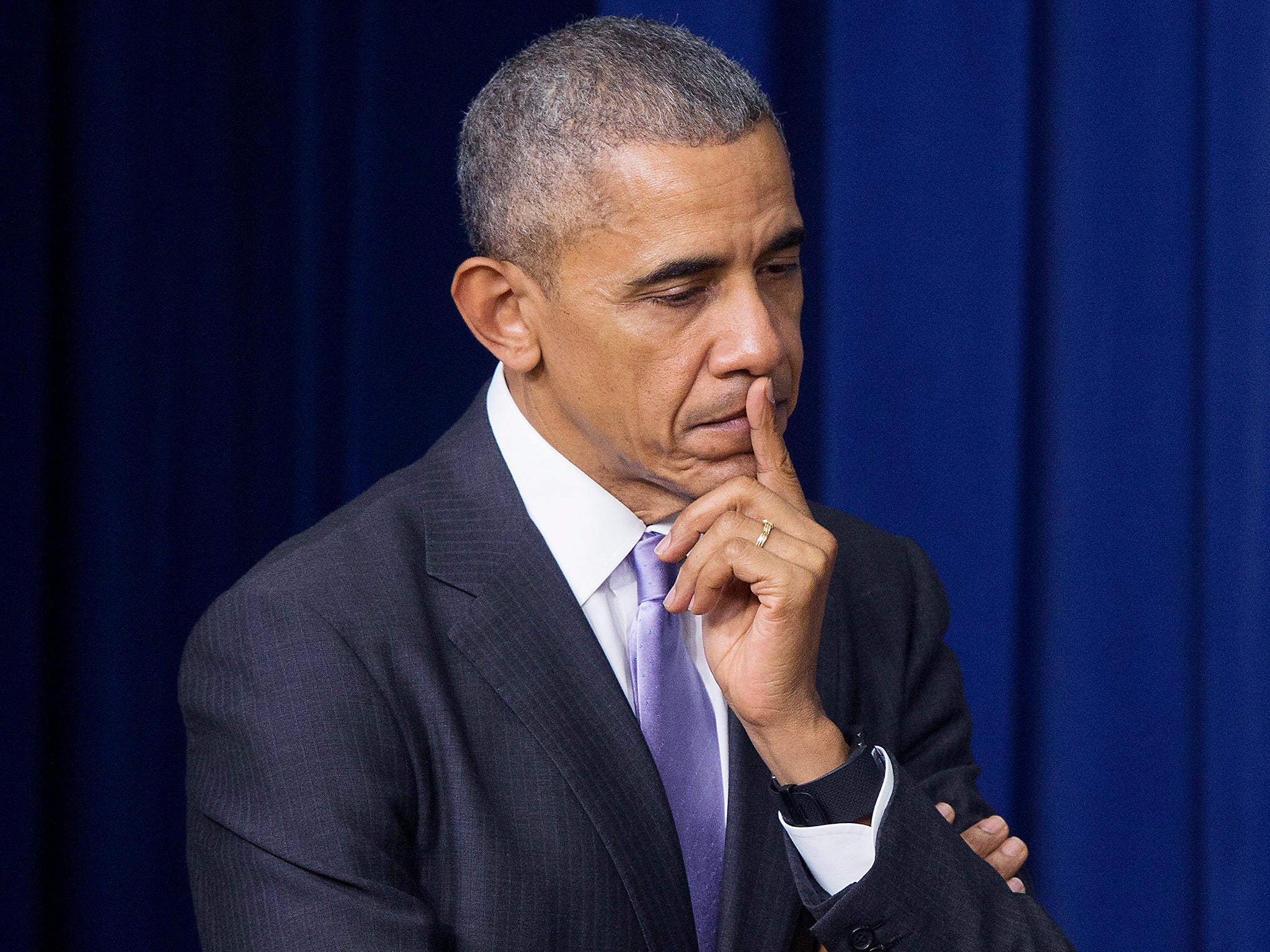Atheists now legally protected in US under religious freedom bill signed by Barack Obama
The HR15 amendment seeks to expand US action against religious intolerance worldwide

Your support helps us to tell the story
From reproductive rights to climate change to Big Tech, The Independent is on the ground when the story is developing. Whether it's investigating the financials of Elon Musk's pro-Trump PAC or producing our latest documentary, 'The A Word', which shines a light on the American women fighting for reproductive rights, we know how important it is to parse out the facts from the messaging.
At such a critical moment in US history, we need reporters on the ground. Your donation allows us to keep sending journalists to speak to both sides of the story.
The Independent is trusted by Americans across the entire political spectrum. And unlike many other quality news outlets, we choose not to lock Americans out of our reporting and analysis with paywalls. We believe quality journalism should be available to everyone, paid for by those who can afford it.
Your support makes all the difference.Atheists will now be protected under US law as part of new legislation promoting religious freedom signed in by US President Barack Obama
From now on the rights of "non theists" as well as religious minorities will be enshrined, following the HR15 amendment to the Frank R. Wolf International Religious Freedom Act.
“The freedom of thought and religion is understood to protect theistic and non-theistic beliefs as well as the right not to profess or practice any religion,” it says.
The legislation was welcomed by secular campaigners when it passed with no opposition in Congress to become law on 16 December.
Roy Speckhardt, the executive director of The American Humanist Association which lobbied for the inclusion of atheists in the legislation called it "historic".
He added that his organisation was looking "forward to working with the US Department of State to ensure religious liberty for non-theists and religious minorities abroad.”
He said: “That non-theists are now recognised as a protected class is a significant step toward full acceptance and inclusion for non-religious individuals, who are still far too often stigmatised and persecuted around the world.”
Scholars also praised the “expansive” view of the amendment.
“The new law has some really interesting language in it,” Caroline Mala Corbin, professor of law at the University of Miami, told Religion News.
“It takes an expansive view of religious liberty, saying freedom of religion is not just about the right to practice religion. It is also about the right to have your own views about religion including being agnostic and atheistic.”
There is a strong foreign policy aspect to the amendment, which sets out to “improve the ability of the United States to advance religious freedom globally through enhanced diplomacy, training, counter-terrorism, and foreign assistance efforts, and through stronger and more flexible political responses to religious freedom violations and violent extremism worldwide, and for other purposes.”
The US Commission on International Religious Freedom was mandated by the original 1998 act to monitor religious freedom – and abuses of it – around the world. The amendment has broadened the group’s remit to include recording abuses of religious freedom by non-state actors, such as the jihadi group Boko Haram.
The amendment also means that religious freedom will be a high priority for US diplomatic missions and overseas officials will be trained in the strategic importance of religious freedom.
An Ambassador-at-Large for religious freedom will also report to the Secretary of State, and include findings on people imprisoned for their religious beliefs, religiously motivated cenosrship and the persecution of religious freedom campaigners.
Join our commenting forum
Join thought-provoking conversations, follow other Independent readers and see their replies
Comments